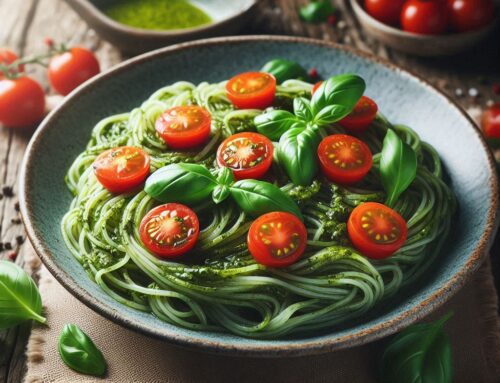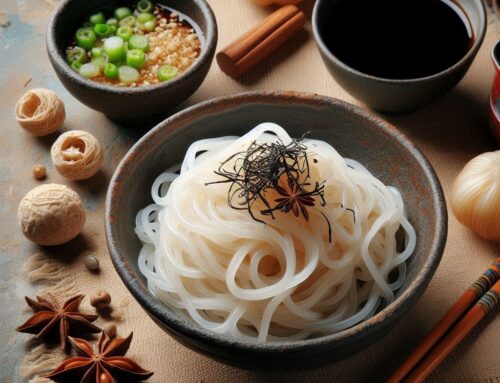
Introduction: The Nutritional Benefits of Cassava and Why You Should Include It in Your Diet
Cassava, a starchy root vegetable native to South America, is gaining recognition for its impressive nutritional profile and health benefits. Often overshadowed by more common staples like potatoes and rice, cassava offers a unique set of nutrients that make it a valuable addition to any diet.
One of the most notable aspects of cassava nutrition is its high carbohydrate content, making it an excellent energy source. This makes it particularly beneficial for athletes or individuals with high energy demands. Additionally, cassava is rich in dietary fiber, which aids in digestion and helps maintain a healthy gut.
The health benefits of cassava extend beyond its macronutrient content. It contains essential vitamins and minerals such as vitamin C, folate, and magnesium. Vitamin C is crucial for immune function and skin health, while folate plays an important role in DNA synthesis and repair. Magnesium contributes to bone health and supports muscle function.
Another reason why you should eat cassava is its potential antioxidant properties. Compounds found in the root may help combat oxidative stress in the body, reducing the risk of chronic diseases.
Incorporating cassava into your diet can be simple and versatile. It can be boiled, baked, or mashed like potatoes or processed into flour for gluten-free baking alternatives. Whether you’re looking to diversify your carbohydrate sources or reap specific health benefits from this nutritious root vegetable, cassava offers plenty of reasons to make it part of your regular meal rotation.
Cassava Flour Pancakes: A Gluten-Free Breakfast Alternative
Cassava flour pancakes are quickly becoming a popular choice for those seeking gluten-free breakfast options. Made from the root of the cassava plant, this versatile flour is a fantastic alternative to traditional wheat flour. For individuals with gluten sensitivities or those simply looking to diversify their diet, cassava flour offers a nutritious and delicious solution.
One of the main advantages of using cassava flour in pancake recipes is its ability to mimic the texture and taste of conventional pancakes, without any gluten. This makes it an excellent choice for creating fluffy, light pancakes that everyone can enjoy. Additionally, cassava flour is rich in carbohydrates and fiber, providing a satisfying and energy-boosting start to your day.
When incorporating cassava flour into your breakfast routine, it’s important to remember that it absorbs more liquid than other flours. Therefore, adjusting the liquid ratios in your recipe may be necessary to achieve the perfect batter consistency. Pair these gluten-free pancakes with fresh fruits or natural sweeteners like honey or maple syrup for a wholesome meal.
Exploring alternative flours for baking not only opens up new culinary possibilities but also contributes to a more inclusive dining experience for those with dietary restrictions. Cassava flour pancakes stand out as a healthy breakfast idea that combines tradition with modern dietary needs—proving that deliciousness doesn’t have to be compromised when going gluten-free.
Cassava Chips: A Crunchy Snack for Every Occasion
Cassava chips are quickly becoming a favorite among snack enthusiasts, offering a delightful crunch and a unique flavor profile that makes them an ideal choice for any occasion. These chips serve as an excellent alternative to traditional potato chips, especially for those seeking gluten-free snacks or healthier homemade options.
Cassava, also known as yuca, is a root vegetable rich in carbohydrates and fiber. It provides the perfect base for creating crispy snacks that are both satisfying and nutritious. Making cassava chips at home is simple and allows you to control the ingredients used, ensuring a healthier version compared to store-bought varieties.
To prepare your own cassava chips, start by peeling the cassava roots and slicing them thinly using a mandoline or sharp knife. Toss the slices with olive oil and your choice of seasonings—sea salt, paprika, or garlic powder work wonderfully. Arrange the slices in a single layer on a baking sheet lined with parchment paper. Bake them in a preheated oven at 375°F (190°C) for about 15-20 minutes until they turn golden brown and crispy.
These homemade cassava chips not only make for delicious gluten-free snacks but also offer versatility in serving options. Enjoy them on their own as a quick bite during movie nights or pair them with dips like guacamole or hummus for added flavor at parties. With their irresistible crunch and wholesome ingredients, cassava chips are sure to become your go-to snack alternative for any gathering or personal treat.
Cassava-Based Soups and Stews: Adding Hearty Texture to Your Meals
Cassava, a versatile root vegetable, has long been cherished in various culinary traditions for its ability to enhance the texture and flavor of soups and stews. As a natural thickener, cassava can transform ordinary dishes into hearty, satisfying meals. When considering soup thickener ideas, cassava stands out due to its unique properties that not only thicken but also enrich the overall taste profile.
Incorporating cassava into your recipes can breathe new life into your cooking repertoire. Hearty soups with cassava offer a delightful blend of textures and flavors that are both comforting and filling. Whether you’re crafting a creamy bisque or a robust chowder, adding cassava ensures each spoonful is rich and velvety.
Stews with root vegetables are another excellent way to utilize cassava’s culinary potential. By combining it with other roots like potatoes or carrots, you create traditional cassava dishes that celebrate the earthy goodness of these ingredients. The result is a stew that is not only nutritious but also deeply flavorful—a perfect dish for any season.
Exploring these traditional methods not only connects us to diverse cultural cuisines but also expands our understanding of how simple ingredients like cassava can enhance everyday meals. So next time you’re in search of an ingredient to elevate your soups or stews, consider reaching for this humble yet powerful root vegetable.
Savory Cassava Waffles: A Unique Twist on a Classic Dish
For those seeking a delightful departure from traditional breakfast fare, savory cassava waffles offer an exciting and delicious alternative. These unique breakfast ideas not only tantalize the taste buds but also cater to diverse dietary needs with their gluten-free waffle options. Cassava flour, derived from the root of the cassava plant, is a versatile ingredient that has been gaining popularity for its light texture and neutral flavor, making it perfect for creative uses in various recipes.
Incorporating savory elements into your waffle batter opens up a world of possibilities. Imagine infusing your batter with herbs like rosemary or thyme, or adding ingredients such as cheese, sun-dried tomatoes, and even spinach for a nutrient-packed meal. Savory waffle recipes can be topped with poached eggs and avocado for a hearty breakfast or served alongside soups and stews as an inventive side dish.
The use of cassava flour not only ensures these waffles are suitable for those following gluten-free diets but also adds a subtle earthiness that complements savory flavors beautifully. Whether you’re experimenting in the kitchen or looking to impress guests with something new and different, savory cassava waffles are sure to become a beloved staple in your culinary repertoire.
Smoothies & Desserts: Sweet Treats with a Cassava Twist
Exploring the world of smoothies and desserts with a cassava twist opens up a delightful array of options for those seeking dairy-free and vegan-friendly treats. Cassava, a versatile root vegetable, lends itself beautifully to both smoothies and desserts, offering unique textures and flavors.
For those interested in dairy-free smoothie ideas, consider incorporating cassava in the form of tapioca pearls. These pearls add a chewy texture that pairs well with creamy coconut milk or almond milk bases. Blend in tropical fruits like mango or pineapple for an exotic flair, or opt for berries to create a refreshing berry-tapioca smoothie.
When it comes to dessert recipes using cassava flour, the possibilities are equally exciting. Cassava flour is an excellent gluten-free alternative that can be used to make everything from cookies to cakes. For instance, try baking soft cassava cookies flavored with vanilla or cinnamon for a simple yet satisfying treat. Alternatively, create vegan dessert options by combining cassava flour with cocoa powder and plant-based sweeteners to whip up delectable chocolate brownies.
These sweet treats not only cater to dietary preferences but also introduce new dimensions of flavor and texture that make them stand out as innovative culinary creations. Whether you’re sipping on a smoothie or indulging in a dessert made from this remarkable root vegetable, you’re sure to enjoy every bite—or sip—of these cassava-inspired delights.
Conclusion: Embrace the Versatility of Cassiva For a Healthier Lifestyle
In conclusion, embracing the versatility of cassava can significantly contribute to a healthier lifestyle. This root vegetable, known for its adaptability in various culinary applications, offers an array of nutritional benefits that make it a valuable addition to any diet. Cassava is rich in carbohydrates, providing a substantial energy source essential for daily activities. It is also naturally gluten-free, making it an excellent option for those with gluten sensitivities or celiac disease.
Moreover, cassava contains essential vitamins and minerals such as vitamin C, folate, and potassium, which play crucial roles in maintaining overall health. Its high fiber content aids digestion and promotes a healthy gut microbiome. By incorporating cassava into your meals—whether through traditional dishes like tapioca pudding or innovative recipes like cassava flour pancakes—you can enjoy its health benefits while exploring diverse flavors and textures.
Ultimately, the versatility of cassava allows for creativity in the kitchen while supporting dietary needs and preferences. As more people seek nutritious alternatives that cater to various lifestyles and dietary restrictions, cassava stands out as a delicious and healthy choice worth exploring.






